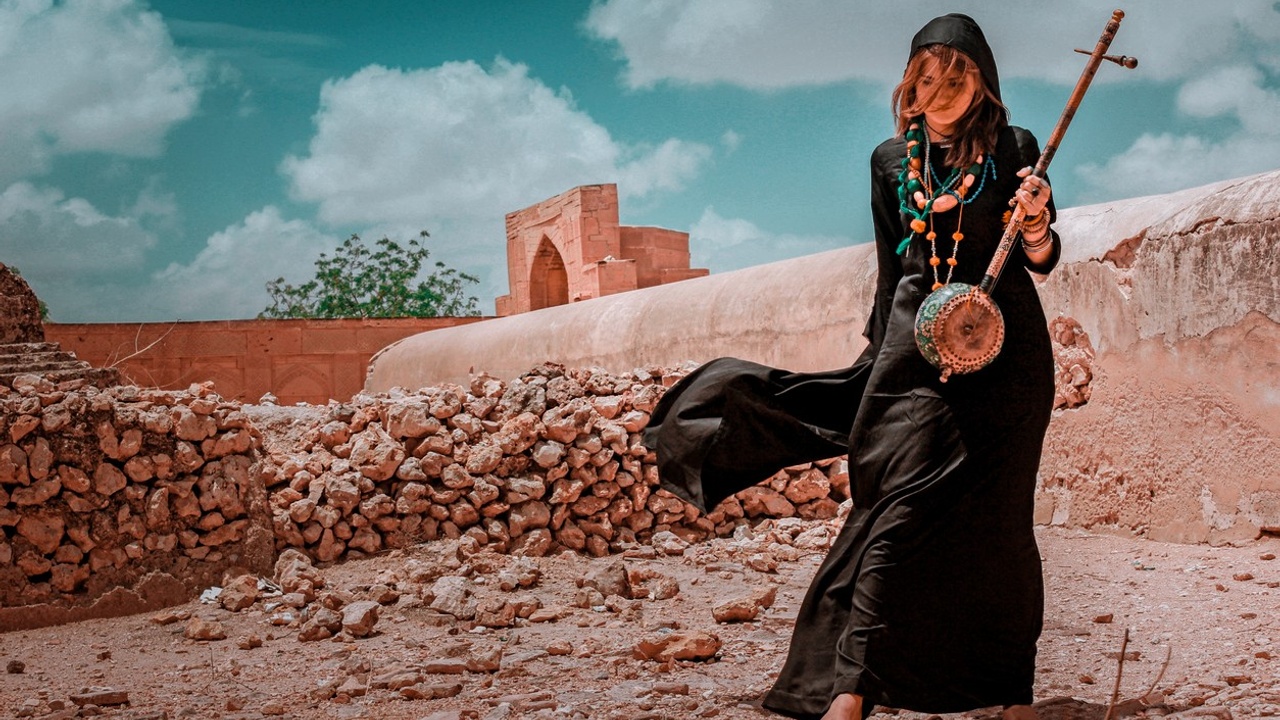The Kafi, a traditional musical form originating from the regions of Sindh and Punjab in Pakistan, carries deep-rooted significance in the cultural and musical heritage of the area, particularly within the framework of Sufi mysticism. Its very name, “kafi,” derived from Arabic, carries connotations of finality and sufficiency, as often seen in the expression “Allah Kafi,” signifying the supremacy of God Almighty. This linguistic heritage reflects the deeply spiritual and devotional nature of the Kafi, which is intricately intertwined with mystical and spiritual themes, inviting the audience to connect with its profound depth.
Comprising a fascinating blend of classical, semi-classical, and light music forms, the Kafi draws from a diverse array of musical influences, including elements from khayal, tappa, thumri, and geet. This amalgamation results in a distinctive and captivating musical structure that complements the mystical poetry of Sufi saints, acting as a conduit for the expression of spiritual devotion and a vehicle for the dissemination of Sufi wisdom. The diverse musical influences on the Kafi are sure to intrigue the audience.
In addition to the Sindhi variant, the Punjabi form of Kafi singing also resonates with a deeply secular and humanistic essence. Eminent figures like Shah Hussain and Bulleh Shah have leveraged the Kafi to articulate profound thoughts and social commentary, infusing their compositions with poignant and at times satirical portrayals of the political and social landscapes of their era. The Punjabi Kafi’s secular and humanistic essence is deeply felt in its social commentary, engaging the audience with the depth of its message.
The Sindhi Kafi, known for its simplicity and clarity in composition and tone, has been significantly influenced by the revered Sufi saint and mystic poet Shah Abdul Latif Bhitai. His contributions in the development of the Sindhi Kafi include numerous verses and composed tunes under the title “The Sur of Shah Latif,” which continue to resonate with audiences to this day, exemplifying the enduring impact of his artistic legacy.
The torchbearers of Kafi singing, such as Zahida Parveen and her daughter Shahida Parveen, have left an indelible mark on the genre. Zahida Parveen, a masterful exponent of traditional Kafi singing, has passed down her expertise to her daughter Shahida Parveen, who adeptly upholds the devotional essence of the Kafi while also exploring other musical genres such as geet, ghazal, semi-classical, and folk forms to respond to evolving musical trends and audience preferences.
Another luminary in the realm of Kafi singing is Abida Parveen, whose profound renditions have significantly enriched the genre. Renowned for her mastery in Kafi singing, Abida Parveen has also ventured into various other musical genres, showcasing the remarkable versatility and depth of her artistry.
In essence, the Kafi represents the rich cultural tapestry of the region, embodying spiritual fervor, social commentary, and an enduring artistic legacy that continues to captivate audiences on a global scale.
















